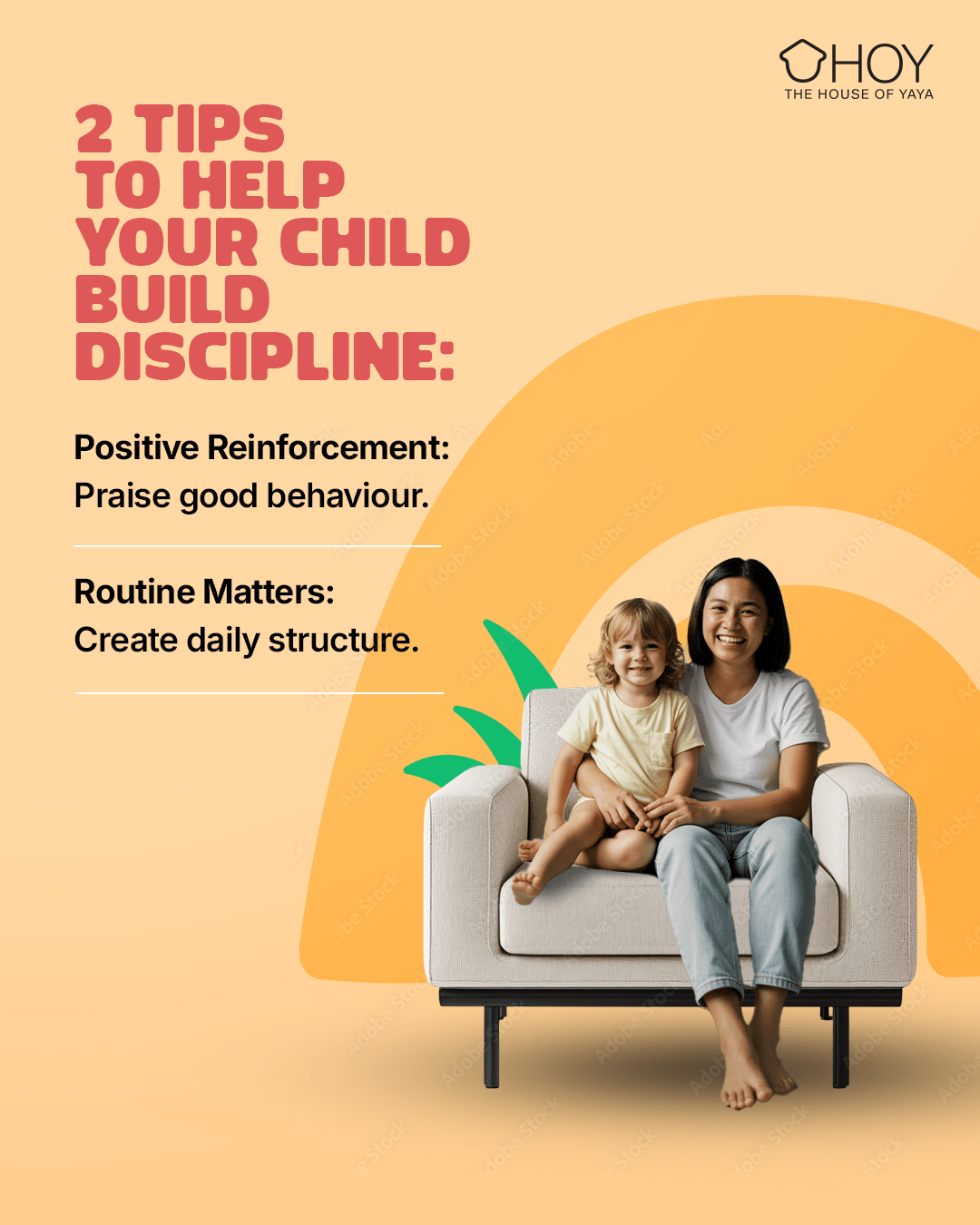2 Simple Tips To Help Your Child Build Discipline (Without Power Struggles)

Discipline isn’t about control. It’s about guidance. As parents, we want to raise kids who are not only kind and respectful, but also capable of managing their own choices. The good news? You don’t need complicated parenting systems or strict punishments to get there.
Building discipline in children comes down to two simple things: positive reinforcement and consistent routines. In this blog, we’ll break down both tips and share how you can use them to make everyday parenting smoother, calmer, and more joyful.
Why Discipline Matters
Before we dive in, let’s talk about why discipline matters in child development. Discipline isn’t just about stopping tantrums or getting your child to brush their teeth. It’s about helping your child develop self-control, empathy, and the ability to make thoughtful choices.
When done right, discipline becomes a life skill your child carries into friendships, school, and adulthood.
Let’s explore two of the most powerful parenting tools for building discipline.
1. Positive Reinforcement: Catch Them Being Good
Positive reinforcement means encouraging and rewarding the behavior you want to see more of. It sounds simple, but it works like magic.
Instead of focusing only on what your child is doing wrong, shift your attention to what they’re doing right. When your child shares a toy, says “please,” or finishes homework without a fight, praise them. These small moments are where real change begins.
Why It Works
Children naturally crave attention from parents. If they only get it when they misbehave, they may continue acting out just to stay on your radar. But when you recognize and celebrate good behavior, you reinforce the idea that positive actions bring connection, praise, and warmth.
This doesn’t mean you need to throw a party every time your child picks up their plate. It just means noticing and saying things like:
- “I saw how patient you were with your sister today. That was really kind.”
- “Thank you for getting ready for bed on time. That helped everyone relax.”
Consistency Is Key
Praise should be sincere and specific. The more consistent you are, the more your child will begin to repeat those good behaviors because they feel seen and valued.
2. Routine Matters: Create a Daily Structure
Kids thrive on predictability. When they know what to expect next, they feel safe, confident, and more in control. That’s why building discipline often starts with something as simple as a daily routine.
Why Routines Build Discipline
Think of a routine as a soft structure. It gives your child clear expectations, which reduces power struggles. For example, if your child knows that screen time happens after homework, they’re less likely to argue or resist.
A routine doesn’t have to be rigid. It just needs to be regular. Here’s how it helps:
- Reduces decision fatigue: Fewer choices mean fewer chances for meltdowns.
- Builds responsibility: Your child begins to own their part in the day (brushing teeth, packing their bag, tidying up).
- Creates emotional security: Kids feel grounded when they know what’s next.
How to Start a Simple Routine
Start with just two or three anchor points in your child’s day:
- Morning routine: Wake-up, breakfast, get dressed
- After school: Snack, homework, play
- Bedtime: Bath, story, lights out
Make it visual if needed. A chart with pictures can be a fun and empowering tool for younger kids. Let your child take part in building the routine. Giving them some choice creates buy-in.
Discipline Without Yelling or Guilt
When we talk about building discipline, many parents worry they’ll need to be “tough” or cold. But discipline doesn’t have to mean punishment. In fact, the most effective discipline is gentle, clear, and consistent.
By focusing on what’s going well and providing a simple structure, you’re already teaching your child:
- That their good behavior matters
- That routines create peace and freedom
- That they have control over their choices
These are lessons that last a lifetime.
Final Thoughts: Progress, Not Perfection
There will still be messy days. Routines will be skipped, praise will be forgotten, and tempers will flare. That’s okay. Discipline is not about perfection. It’s about progress.
The next time your child shares, cooperates, or shows kindness, pause. Acknowledge it. Let them know you see them. And the next time chaos takes over, remember it’s never too late to reset the tone.
Small steps, taken consistently, lead to big changes. You’re not just shaping behavior. You’re shaping character. And that’s the heart of parenting.
Looking for Extra Support?
At House of YAYA, we understand that parenting is a full-time role. Our trusted nannies are more than childcare providers, they’re partners in your child’s development. We support families with trained professionals who value structure, empathy, and everyday learning.
Whether you need full-time help or just a break to reset your own routine, we’re here to help.
House of YAYA, Childcare, upgraded.


